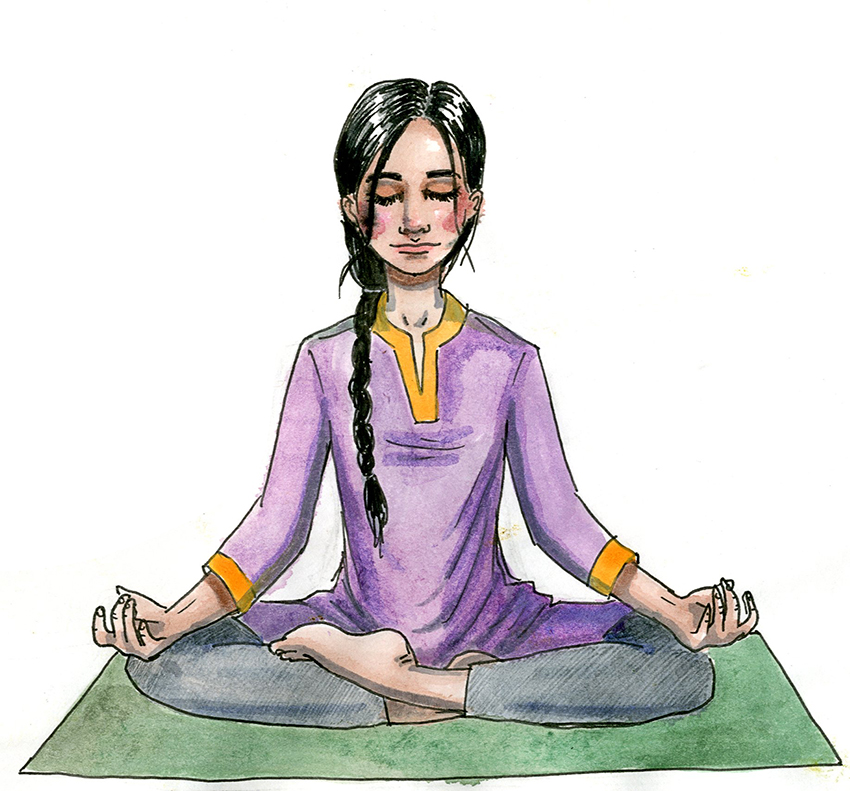Our time in college takes place at an intersection of many factors that challenge spirituality. A laundry list of new priorities, past religious baggage and new people and ideas can create barriers for students. Regular meditation might sound nice, but in the midst of maintaining a GPA and a social life, it hardly takes precedence.
Data from the Pew Research Center shows a trend: Young people are moving away from the religious practices of their parents. This trend away from tradition doesn’t necessarily reflect a departure from spirituality, however. This leaves a large group of students with spiritual inclinations searching for ways to express and explore them.
Regardless of where you’re at in this search — learning, wandering, deconstructing, resolved against religion or apathetic — you’re not alone. And this search for spirituality may be more important and beneficial than you think.
For individuals, the health benefits of spiritual practices like prayer and meditation are well-documented. Practicing these regularly can reduce stress, while boosting self-awareness and gratitude. On a college campus where students face stress, sleep-deprivation and constant comparison, practices such as prayer and meditation can be invaluable tools for combating negativity and leading a more healthy lifestyle. A Washington Post article even describes how, increasingly, agnostics and atheists are advocating for spiritual practices in their lives.
Travis Hollman, a history senior, has experienced the benefits of spirituality. His spiritual journey may be familiar to many students. Growing up, various extended family members were devoted to religion. He and his mom might go to church if they wanted to, but also enjoyed sleeping in on Sundays.
“I kinda had to figure it out more naturally, more organically.” To do this, he said he drew from many resources — from religious texts to the natural world.
Since coming to UT, Travis says his spiritual journey has evolved and challenged him not to judge others at face value. “Everybody has a public image that they present. Then there’s a private image that they don’t really like to talk about … Everybody has that depth.”
This recognition of others is something Brad Fuerst sees as linked with spirituality. Brad is the pastor of Lutheran Campus Ministry, which serves the Austin area. Once a week, he sits on West Mall with his friendly dog, Grati, and a sign reading “Let’s talk about anything.” In stark contrast to our friend with the red table, King James Bible and microphone, he strives to be nonintrusive and unassuming. Over his years of campus ministry, he has talked to hundreds of students about spirituality through these “outdoor office hours.”
He describes students’ spiritual journey as a Google search. Conversations with him might provide students with one result in this search. “I think in general, the linear way of coming about meaning has been replaced by a more piecemeal way of deriving meaning,” Brad says.
But he doesn’t see this search for meaning as an aimless or even purely individual endeavor. In regards to spirituality, he asks: “What is it doing? Is it drawing you further into your own self or your own self absorption? Or is it moving you out and creating connection and community and commonwealth? That there, to me, is my litmus test for a healthy spirituality.” So spirituality not only benefits us individually, but can engage us in something bigger.
Neither Travis nor Brad talked theoretically about the material versus the immaterial, with regard to spirituality. To them, spirituality more importantly provides a way to relate to themselves, the world and the people around them.
So whether from a mosque, a temple, a church, nature, the classroom or a yoga mat, perhaps it is essential that we regularly practice engaging something beyond ourselves. It may even benefit not only us as individuals but as a UT community and beyond.
Jacob is a English senior from Dallas.


















